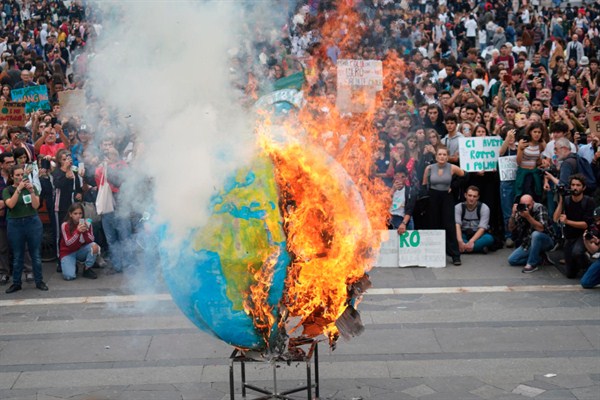Despite unfolding ecological catastrophes around the world, negotiations on a potentially groundbreaking Global Pact for the Environment have faltered. Its many champions had hoped for a binding multilateral treaty that would place all international environmental law within a coherent legal framework, as well as establish access to a healthy environment as a fundamental human right. In the end, U.N. member states meeting in Nairobi in May could only agree on a watered-down goal: a “political declaration” to be prepared by 2022, to coincide with the 50th anniversary of the historic 1972 Stockholm Conference on the Human Environment. Beyond establishing the United Nations Environmental Program, the Stockholm Conference marked the first time that ecological issues had been placed at the top of the global agenda.
Last week in New York, on the margins of the opening of the U.N. General Assembly, I participated in an after-action review of what went wrong in Nairobi—and where the world must go from here. The hosts were Columbia University’s Earth Institute and the Club des Juristes, a network of international legal scholars that supports a Global Pact for the Environment. The discussion drove home two points. First, the setback in Nairobi was disappointing but not fatal, as momentum for an agreement will inevitably build as the world’s environmental crisis deepens. Second, while a “declaration” may seem a thin reed upon which to construct a healthier relationship with the planet, history suggests that even nonbinding declarations can catalyze the development of international legal norms.
The outcome in Nairobi was surprising and disappointing, given the high hopes around the launch of multilateral negotiations. In May 2018, the General Assembly endorsed a resolution instructing U.N. Secretary-General Antonio Guterres to compile a report on the gaps in current international environmental law and how they might be filled. Multilateral support was overwhelming, with only five U.N. member states opposed: Russia, Syria, Turkey, the Philippines and the United States.

